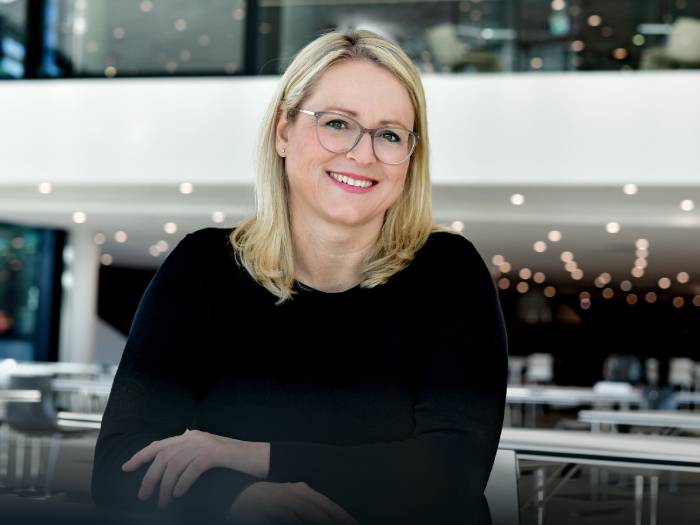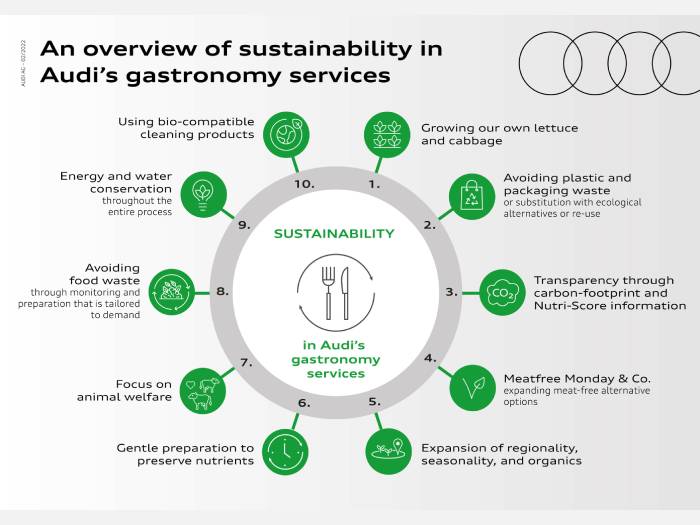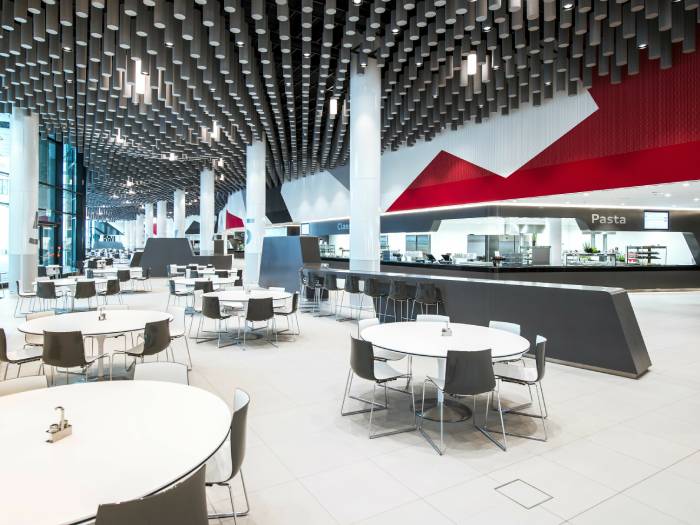More sustainability also in Audi's gastronomy services
Reducing emissions related to gastronomy services while improving both food quality and employees’ awareness: Victoria Broscheit, Head of Audi’s Gastronomy Services, explains how it has been possible to increase sustainability even in this area.
Audi is working holistically to cut CO2 emissions along the entire value chain and in all company activities, with the goal of becoming carbon neutral by 2050. Achieving this goal requires taking care of every detail, including food services. How? In a nutshell, by handling resources very carefully and avoiding long storage or transportation distances.
Audi's gastronomy services follow these criteria, choosing regional suppliers, avoiding waste in company cafeterias, and promoting healthy and conscious eating so that sustainability becomes a habit even at the dinner table.
Sustainable Gastronomy

"Audi wants to be sustainable in all its activities: gastronomy, as a whole, also needs to be greener, with a vision that goes beyond company catering. We can make a significant contribution by taking a conscious approach to food. For example, meat consumption is a very hot topic. We follow the guidelines of the German Nutrition Association, so we still offer meat but not in the amounts that have been common for a long time", says Victoria Broscheit, Head of Gastronomy Services at Audi.
Food culture
Audi wants to make it easier for its employees to make good choices for themselves; that is why it puts a lot of stock in nutrition and health, believing that the company's food culture is an expression of esteem for employees. An aspect that is not only about food consumption, since company food services also support communication, networking and interpersonal exchanges. This is why new offerings are continually being created, while regionality, organic quality and reduction of emissions remain key pillars.
"We have instituted 'meat-free Monday': once a month the company cafeterias offer meat-free meals; it is a cue to take a conscious look at our nutrition. Of course, an initiative like this is embedded in a holistic strategy, otherwise it wouldn't make sense", Broscheit explains.
Value chain

Audi's attention to the value chain begins with the purchasing process, which favors locally produced products. This is not an easy choice, as up to 20,000 meals a day were served before Covid.
"We select suppliers very deliberately, and we offer them security through purchase guarantees, because we are aware that higher standards cost money", resumes Broscheit, who then recounts how fruits and vegetables are purchased according to seasonal criteria. "Avocados are not found in our cafeterias because they have to be imported from abroad and their cultivation requires the consumption of huge amounts of water. Forgoing these kinds of products is absolutely in line with the wishes of our employees: in the summer of 2021 we activated a pilot project that highlighted the carbon footprint of each meal. It was so successful that we will indicate the carbon footprint on all our menus".
New eating habits
Audi employees' eating habits are changing, such that 66% more vegetarian and vegan meals are being distributed this year than in 2020. "By 2025, we expect at least half of the meals to be vegetarian and vegan. A survey we conducted recently showed that our employees prefer healthier and greener meals. In addition, we noticed that when good vegetarian dishes are served, their demand is the same as that for dishes containing meat. So we have made them permanent on our menus, even considering that the recommended consumption of meat is 300-600 grams per week", Broscheit points out.
Company values to share

Company values are increasingly important to employees, and this not only applies to food, but also to the spaces where people spend their breaks or meet. "In Ingolstadt we have recently established lounges where people can meet and work together to stimulate creativity. In the future, people will come to the office primarily to meet each other in person, and we are creating spaces for that. Because of the pandemic and changes in our work habits, the workplace is becoming increasingly important as a place that brings employees together and bolsters a sense of community. We have also recently created outdoor seating dedicated to breaks", Broscheit adds.
Nutrition education
In February 2021 Audi launched a delivery service, whereby employees could receive food at home that was already prepared and packaged in returnable glass containers or biodegradable boxes. Nutritional education also played a role, with workshops on healthy eating in the home office. Chefs from Ingolstadt and Neckarsulm gave tips on how to turn convenience products into healthy meals.
Regarding waste, on the other hand, there is a lot of focus on overproduction in gastronomy services, but also on planning. "For all food waste that cannot be avoided, we look for the most sensible way to use it: we are working on a project where food waste is dehydrated, composted, and delivered to a biogas plant", Broscheit explains.
Plastic and sustainable packaging
Audi works closely with its suppliers to reduce the use of packaging, using multi-use systems or having bulk products delivered. Food distribution to employees also matters, and by managing it directly, Audi has been able to make significant improvements.
From the fall of 2020, takeout products will be dispensed exclusively in packaging made from bagasse - a compostable material that is a byproduct of sugarcane processing - and kraft paper, or bioplastics made from renewable raw materials. Reuse is also widespread, while plastic has been banned from all takeout products. "Those are a lot of small steps, but they have a big effect", Broscheit concludes.
Source: AUDI AG
VGI | Responsible OU: VP | Creation date: article date | Class 9.1
